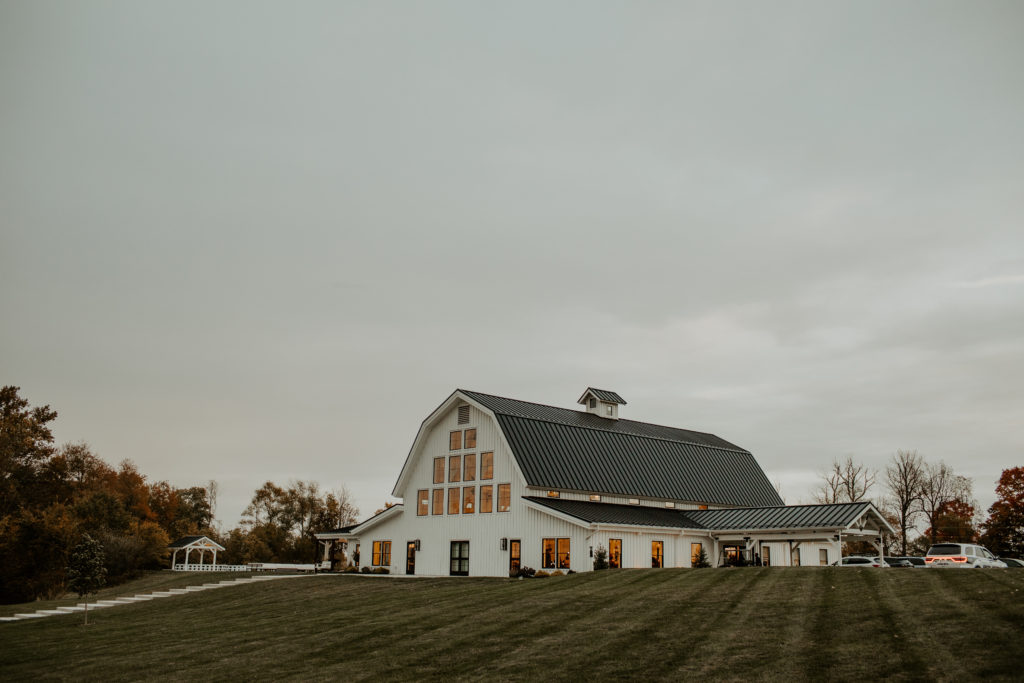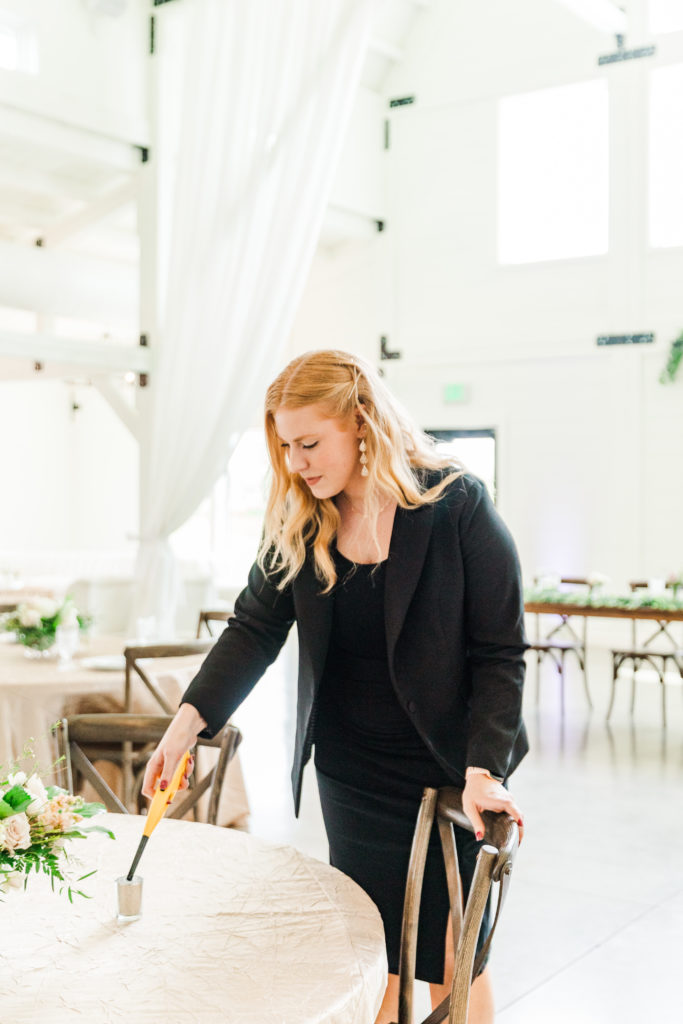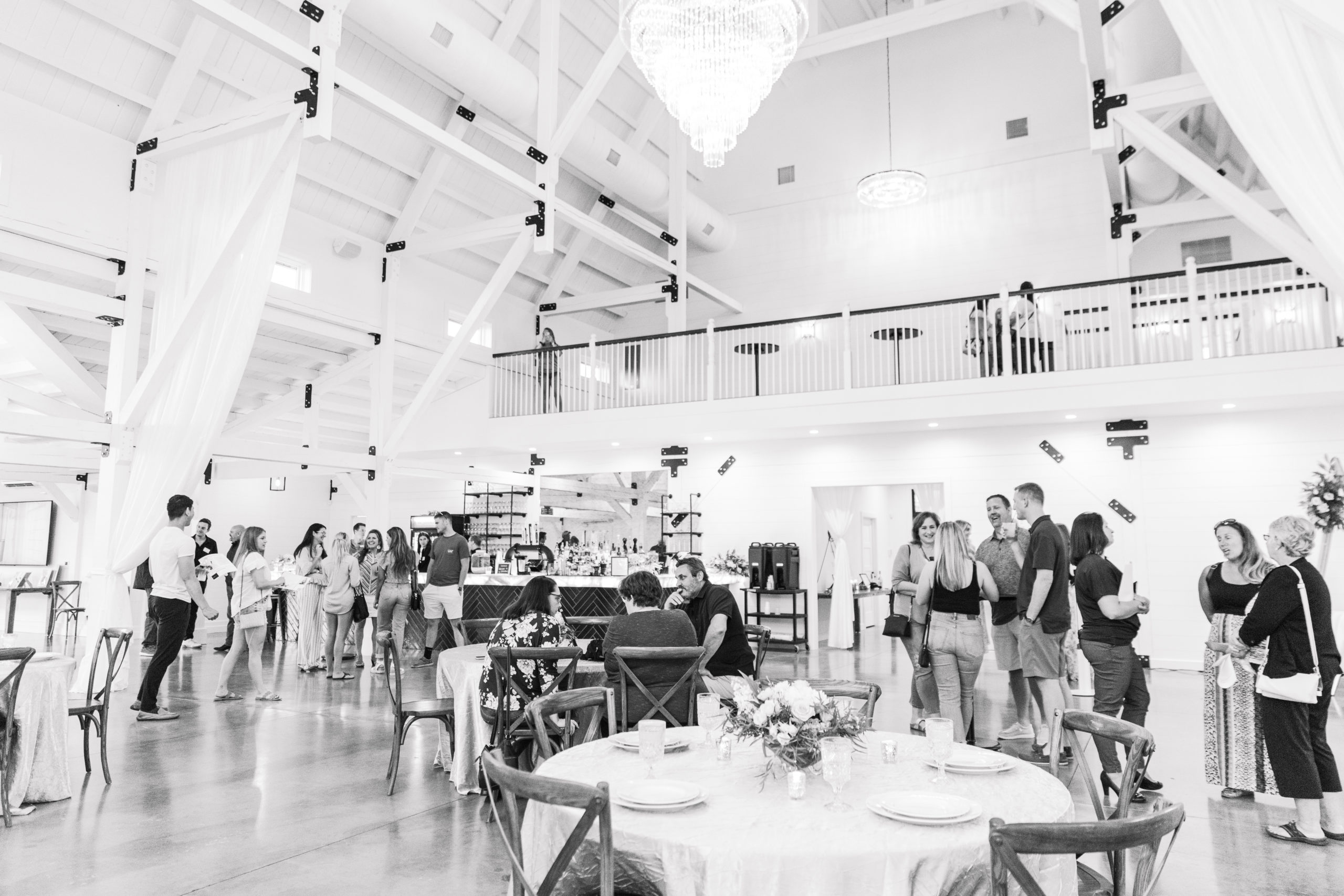Planning a corporate event in a rural setting can feel like trying to navigate a maze in the dark. With so many moving pieces, it’s easy to get lost and overwhelmed. But fear not, my fellow event planners!
Company event planning in a rural setting like the Indy area is like tending to a beautiful garden. With careful planning and nurturing, your event can bloom into a stunning display that leaves a lasting impression on attendees.
Here’s is a full guide to corporate event planning.
Setting the Foundation
The first step in planning any corporate event is to establish the foundation. This includes identifying the purpose of the event, establishing a budget, and defining the target audience.
Identifying the Purpose of the Event
Before you can begin planning any event, you must first identify the purpose. What do you hope to achieve from this event? Is it to launch a new product, celebrate a milestone, or bring together a group of stakeholders? Knowing the purpose of the event will help guide all of your planning decisions moving forward.
Establishing the Budget
Once you’ve identified the purpose of the event, it’s time to establish a budget. This will help determine the scope of the event and ensure that you stay within your financial means. Be sure to consider all of the expenses associated with the event, including venue rental, catering, entertainment, and AV equipment.
Defining the Target Audience
Knowing your target audience is essential to planning a successful event. Consider factors such as age range, profession, interests, and location when defining your audience. This will help ensure that your event is tailored to their needs and interests.
Choosing the Right Venue

Once you’ve established the foundation of your event, it’s time to choose the right venue. Hosting a corporate event outside of the city offers unique advantages, including a more relaxed atmosphere and the opportunity to showcase the natural beauty of a rural setting.
Factors to Consider When Choosing a Rural Venue
When choosing a rural venue, there are several factors to consider. These include accessibility, accommodations, capacity, and amenities. Be sure to visit the venue in person to ensure that it meets all of your needs.
Comparison of Different Venue Options
Once you’ve identified a few potential venues, compare them based on the factors listed above. This will help you make an informed decision and choose the best option for your event that is also unique and captivating.
Catering and Beverage Services

Selecting the right caterer and menu is essential to the success of any event. When planning a rural event, it’s important to consider dietary restrictions and special requests, as well as bar options and policies.
Selecting the Right Caterer and Menu
When choosing a caterer, look for a provider with experience in corporate events and a reputation for quality service. Be sure to review their menu options and ensure that they can accommodate any special requests.
Dietary Restrictions and Special Requests
It’s essential to consider dietary restrictions and special requests when planning any event. Be sure to communicate these needs with your caterer and ensure that they can provide appropriate options for all attendees.
Bar Options and Policies
If you plan to include alcohol at your event, be sure to establish clear policies and guidelines. Consider offering a range of options, including beer, wine, and cocktails, and ensure that you have a plan in place for handling any issues that may arise. Also, a custom bar is sure to improve your attendee engagement.
Event Logistics

Creating a detailed timeline and schedule, organizing transportation and parking, and setting up and breaking down the event are all essential aspects of event logistics.
Creating a Timeline and Schedule
Creating a detailed timeline and schedule will help ensure that your event runs smoothly. Be sure to include time for setup and breakdown, as well as any scheduled activities or presentations.
Organizing Transportation and Parking
Consider how attendees will get to and from the venue, and ensure that there is ample parking available. Consider hiring a transportation provider to make it easier for attendees to get to and from the event.
Setting Up and Breaking Down the Event
Proper setup and breakdown of the event are crucial to ensuring that everything runs smoothly. Make sure that all equipment, tables, chairs, and decor are set up in advance and that everything is in place before the event begins. If you are working with a design vendor can help you decorate your event and save time. Also, have a plan in place for breaking down and cleaning up after the event.
Technology and AV
Identifying the necessary technology and equipment, choosing the right vendor, and ensuring proper setup and testing are all critical components of any successful event.
Identifying the Necessary Technology and Equipment
Consider the technology and equipment needed to support your event, such as projectors, microphones, and sound systems. Determine what technology is necessary to execute your vision and ensure that it is available and in good working order.
Choosing the Right Vendor
Selecting the right vendor to provide technology and AV services is essential. Look for a provider with experience in corporate events, a reputation for quality service, and the ability to provide the necessary equipment.
Ensuring Proper Setup and Testing
Once you’ve selected a vendor and the necessary technology, ensure that it is properly set up and tested before the event begins. This will help prevent any last-minute technical difficulties during the event.
Entertainment and Activities

Engaging activities, entertainment, and team-building exercises can help create a memorable and enjoyable event for all attendees.
Planning Engaging Activities for Attendees
Consider what activities will be most engaging and enjoyable for your target audience. This may include team-building exercises, interactive games, or group activities.
Booking Entertainment Options
If you plan to include entertainment, consider what options will be most appropriate for your audience and budget. This may include live music, comedians, or speakers.
Integrating Team-Building Exercises
Team-building exercises can help attendees connect and work together more effectively. Consider including exercises that encourage communication, problem-solving, and collaboration.
Branding and Marketing
Creating a consistent brand image, developing marketing materials, and promoting the event to attendees and the community can help build excitement and anticipation for your corporate event.
Creating a Consistent Brand Image
Develop a consistent brand image for your event by selecting appropriate colors, fonts, and logos. Ensure that all marketing materials, including invitations, programs, and signage, reflect this brand image.
Developing Marketing Materials
Create marketing materials that effectively promote your event and communicate its key features, such as the date, location, and theme. Utilize social media, email marketing, and other communication channels to reach your target audience.
Promoting the Event to Attendees and the Community
Utilize a mix of marketing tactics to promote your event to both attendees and the wider community. This may include advertising, press releases, and influencer outreach.
Accommodations and Travel
Arranging lodging for out-of-town guests, facilitating transportation to and from the venue, and providing travel information and resources can help ensure that all attendees can participate in your event.
Arranging Lodging for Out-of-Town Guests
Select appropriate lodging options for out-of-town guests based on their preferences and budget. Negotiate group rates to provide attendees with the best value.
Facilitating Transportation to and From the Venue
Arrange transportation options, such as shuttles or rental cars, to ensure that attendees can easily travel to and from the event venue.
Providing Travel Information and Resources
Provide attendees with travel information and resources, such as maps, directions, and local recommendations, to help them navigate the area.
Safety and Security
Establishing safety protocols and emergency procedures, hiring security personnel, and monitoring the event to ensure attendee safety are critical components of any successful corporate event.
Establishing Safety Protocols and Emergency Procedures
Develop clear safety protocols and emergency procedures that can be quickly implemented if necessary. Ensure that all event staff and volunteers are trained on these protocols and procedures.
Hiring Security Personnel
Hire experienced security personnel to monitor the event and respond to any safety concerns or emergencies.
Monitoring the Event to Ensure Attendee Safety
Monitor the event throughout the day to ensure that attendees are safe and comfortable. Be prepared to respond quickly to any safety concerns.
Staffing and Volunteers

Hiring event staff and volunteers, training personnel on event logistics and safety, and assigning roles and responsibilities can help ensure that your event runs smoothly.
Hiring Event Staff and Volunteers
Select a team of event staff and volunteers with the necessary skills and experience to execute your vision. Ensure that all personnel are trained on event logistics, safety protocols, and emergency procedures.
Training Personnel on Event Logistics and Safety
Provide all event staff and volunteers with the necessary training to effectively execute their roles and responsibilities. This may include training on technology and AV equipment, catering and beverage services, and safety protocols.
Assigning Roles and Responsibilities
Clearly define the roles and responsibilities of all event staff and volunteers to ensure that everyone knows what is expected of them.
Budget Management
Tracking expenses and staying within budget, dealing with unforeseen costs, and allocating funds appropriately are all essential components of effective budget management.
Tracking Expenses and Staying Within Budget
Track all expenses related to the event and regularly review your budget to ensure that you stay within your financial limits.
Dealing With Unforeseen Costs
Be prepared for unforeseen costs by setting aside a contingency fund. Monitor your budget regularly and be prepared to make adjustments as needed.
Allocating Funds Appropriately
Allocate funds appropriately to ensure that you are making the most of your budget. Prioritize the most important aspects of the event and allocate funds accordingly.
Communication and Feedback
Planning a successful corporate event in a rural setting requires effective communication with all stakeholders involved in the planning process. From the event planning team to the attendees and sponsors, it is crucial to keep everyone informed about the event’s progress.
Keeping Stakeholders Informed Throughout the Planning Process
Regular communication with all stakeholders involved in the event is essential for the success of the event. Establishing regular communication channels, such as weekly update meetings, email newsletters, and project management tools, can help keep everyone informed about the event’s progress.
It’s important to keep the lines of communication open to address any concerns or questions stakeholders may have. It’s also a good idea to share any significant developments or changes to the event plan as soon as possible.
Collecting Feedback and Using It to Improve Future Events
Collecting feedback from attendees, sponsors, and other stakeholders can provide valuable insights into the success of the event and areas for improvement in future events. Sending out post-event surveys or questionnaires can help gather feedback and suggestions for improvement.
It’s important to analyze the feedback received and use it to make improvements to the corporate event planning process and future events. Responding to feedback received shows that you value the input of stakeholders and are committed to making future events even better.
Providing Post-event Follow-Up
Following up with attendees, sponsors, and other stakeholders after the event can help strengthen relationships and gather feedback for future events. Sending out thank-you notes, surveys, or other communications can show appreciation for their support and feedback.
Providing a summary of the event’s success, including attendance numbers, positive feedback, and any significant milestones, can help keep stakeholders informed and engaged in future events.
Final Thoughts
Running a successful corporate event in a rural setting requires careful planning and attention to detail. From training personnel on safety protocols, assigning roles and responsibilities, budget management, communication and feedback collection – all of these components need to be taken into consideration for the event’s success.
By leveraging effective strategies such as regular update meetings, thank-you notes post-event follow up or surveys you can ensure that your next corporate event will run smoothly with maximum engagement from attendees and stakeholders alike. With proper preparation and execution by taking full advantage of these tips, you’ll have no problem creating memorable experiences for everyone involved!
Looking for the premier corporate event space in Indianapolis? The Sixpence has you covered. If you’re looking for a beautiful and spacious venue to host your next event, contact us today! With our affordable packages, we’ll make sure your event is memorable and successful!

As the co-owner and designer of The Sixpence, Shelby Dempsey brings her extensive background in wedding photography and videography to create a purpose-built venue that blends aesthetics with functionality. After capturing nearly 400 weddings across the country and internationally, Shelby designed The Sixpence with a photographer’s eye, ensuring that every space not only looks beautiful but also serves the practical needs of both couples and photographers on their special day.

[…] we go with a purpose-built venue like The Sixpence, the ideal blend of modern aesthetics and cost-effectiveness, or a more traditional […]